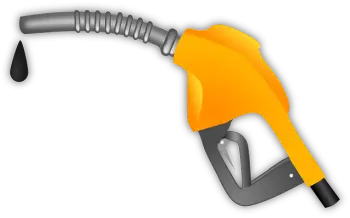
Fuel is the element from which energy is extracted so that an engine can work. Fuel in the broad sense of the word is a substance that can release energy during certain processes, which can be used for technical purposes. Chemical fuel releases energy during exothermic chemical reactions during combustion.
The definition of fuel is very broad and encompasses many different technologies. For example, we can talk about nuclear fuel to refer to the uranium and plutonium that is used in nuclear power plants. However, we will focus especially on the chemical fuels used in thermal engines.
Some fuels (for example, homogeneous gunpowder or solid rocket fuels) are capable of self-combustion in the absence of an oxidizing agent. However, most fuels used in domestic and industrial applications require oxygen for combustion.
Fuel types
There are different types of fuels that can be classified by their thermodynamic state, by their structure, by their origin or by their function.
By its structure we distinguish:
- Solid fuels, where wood, peat, coal and nitrogen compounds stand out.
- Liquid fuels, which include oils, alcohols, ethers, emulsions, synthetic fuels and, above all, fuels derived from petroleum.
- Gaseous fuels, of which we highlight natural gas, propane, butane, methane and hydrogen.
Examples of fuels for thermal engines
The fuels most commonly used in thermal engines are liquid fuels derived from petroleum, although there are also engines that run on gas. Among the most used fuels we highlight the following:
- Diesel fuel (diesel), used in diesel engines.
- Dark stove fuel (domestic stove).
- Light heating oil.
- Fuel oil.
- Fuel oil.
- Kerosene.
- Gasoline (Otto engine)
- GNP gas and LPG gas
Where do the fuels come from?
The most common combustible materials are organic fuels, which contain carbon and hydrogen. Fuels are divided according to the state of aggregation of the substance into solid, liquid and gaseous, and according to the method of production, they are divided into natural (coal, oil, gas) and artificial.
Fossil fuels are the main source of energy for modern society. This relates to such global problems of modern civilization as depletion of non-renewable energy resources, environmental pollution, and global warming.
Where does the concept of fuel come from?
The concept of fuel arose from the ability of certain substances to burn, while generating chemical energy. In most cases, combustion is a chemical oxidation reaction, whereas for other fuels, such as wood or gasoline, the oxidizer is often oxygen from the air. Other substances, such as liquid oxygen, can also be used as oxidizing agents in special devices.
Since many devices use oxygen consumed from the ambient air without special efforts (an "invisible" oxidizer) as an oxidizing agent, in everyday life there is a mixture of concepts and fuel is often (and mistakenly) called fuel.
Thermal engines have the function of converting the heat energy of the fuel into kinetic energy. In the case of electrical generators, in electrical energy, but passing first through kinetic energy as well.
The main indicator of fuel is heat capacity.